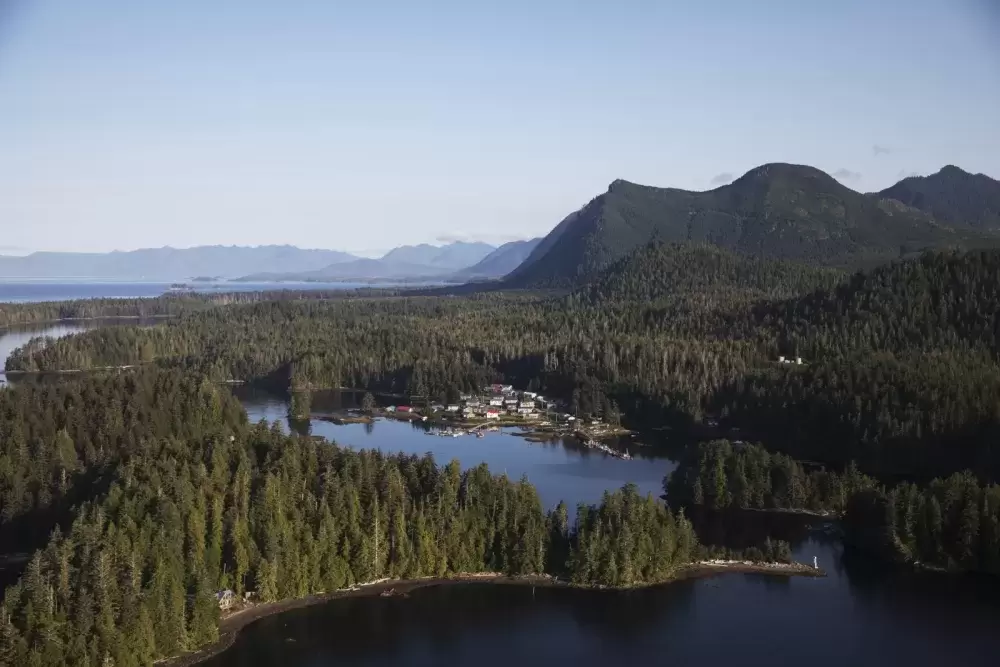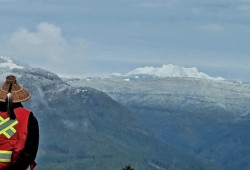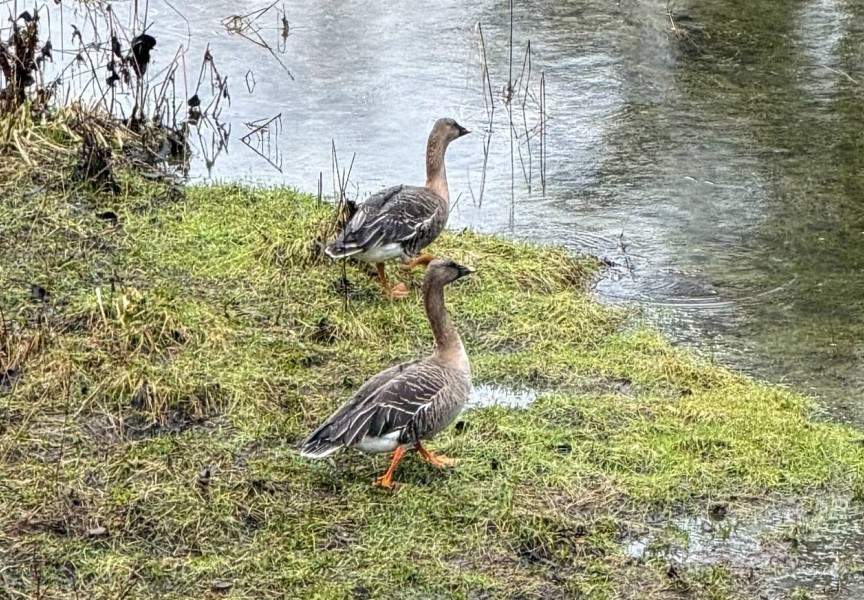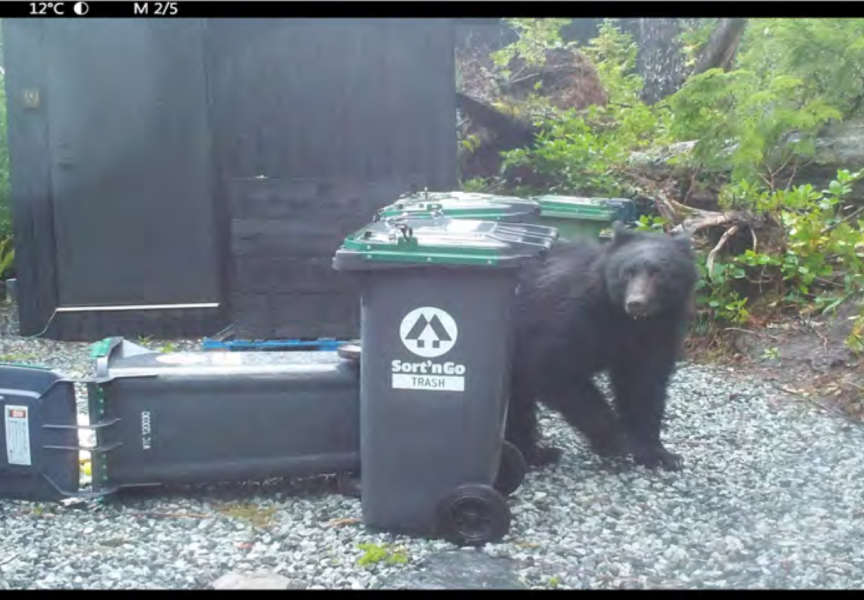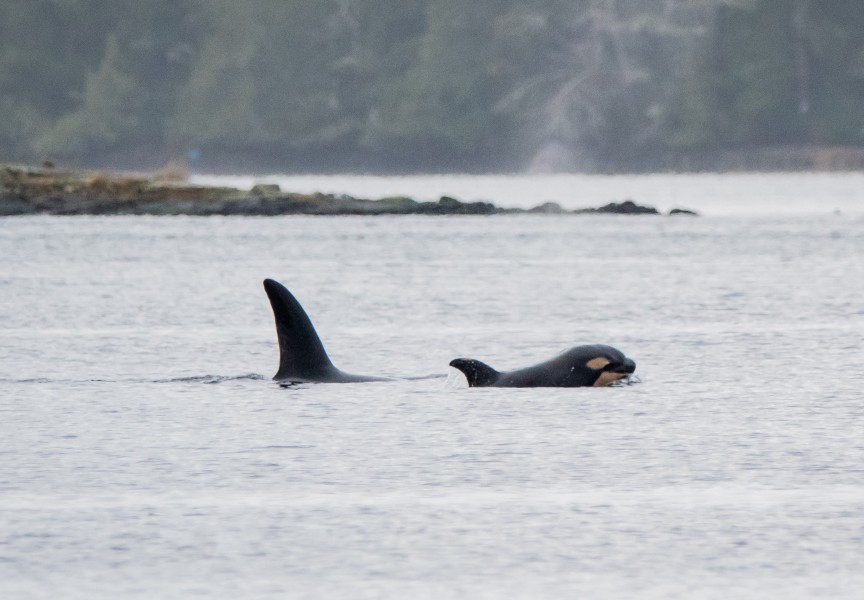When Wishkey, a story-teller from Huu-ay-aht, was a teenager he witnessed his father, Robert Dennis Sr, compose a song about connection.
For many years Huu-ay-aht had been were living with the aftermath of clear cutting in their territory in the 1950’s, said Wishkey. After decades of impact, he recalls 1984 was the first time they had a big run of salmon.
He was sitting with his grandfather, who asked him, “What do you see?”
“I see eagles - eagles everywhere,” replied Wishkey. “They’re at the river, they’re in the trees, [and] they’re in the sky.”
His grandfather told Wishkey, “I'll tell you what you don't see is… how connected they really are.”
When the eagles feed themselves, they also feed mother nature, his Grandfather continued. For the young eagles, they hide away and eat their food in the forest, so that bigger eagles don’t take from them.
“[The] remains, the skin… the bones and all the guts and stuff that is not eaten, actually feeds the forest,” said Wishkey, reflecting upon the story with his grandfather. “It was so powerful and so moving.”
The song that his father had composed depicted the scene exactly, Wishkey continued.
“I got to hear and see…my dad become a composer on that day,” he said.
“I think in the modern world we think of things so linear, and that they don't really affect other things,” continued Wishkey. “But our teachings say otherwise… things are really, truly one and connected.”
He said that some of the most sacred principles for Nuu-chah-nulth are ‘iisaak’, meaning a greater respect, ‘uu-a-thluk’, meaning taking care of, and ‘hish-uk ts’a-walk’, meaning everything is one and connected.
“The environment will always be there for us as long as we take care of it,” said Harry Brossault, a WitWak guardian of Huu-ay-aht. “We have to maintain a balance of what we take from the environment and what we put back.”
For Huu-ay-aht, clams and crab are an important part of their diet, said Brossault. He notes that taking care of the shores are essential to ensure that their culturally significant west coast diet is sustained.
“If we don’t take care of our environment, the environment won’t take care of us,” he explained. “We won’t have our fish, we won’t have our cedar bark, we won’t have our timbers to make longhouses or totem poles…anything else we hunt will become scarce.”
The plants, medicines and food that is harvested is done in such a way that maintains the return for the following years, added Wishkey.
Anthony Oscar, manager for the WitWak guardian program for Ka:'yu:'k't'h'/Che:k'tles7et'h' First Nation (KCFN), said through the program they are teaching connection between water, land, trees, and all surroundings.
Among the vast amount of monitoring and assessments that the KCFN WitWak guardian program has in their territory, they conducted surveys of salmon, sea otters, seal/sea lion, deer, and elk, said Oscar.
“Anything with environmental stuff we do the monitoring for it,” said Oscar. “Even if they have a contractor in and they still have to have one of our crew with them.”
“I think it's really important to have, as they say, boots on the ground. We get to see everything out here and get to monitor and take care of our territory,” he continued. “I think it's one of the biggest…[and] most important things for our nation to have for our lands and resources in order for us to be able to live where we live, again.”
For Brossault, an important part of being a guardian is connecting the younger generation to teachings from elders and knowledge holders of their ha’houlthee.
“Then passing those teachings down - on why these areas are important to Huu-ay-aht and Nuu-chah-nulth, why they need to be protected, whether it's sacred or it’s a harvest area for us - and learning to take better care of our land, our water and our resources in a way that hasn't been done for quite some time,” he continued.
Brossault said that his work as a guardian has helped him pass down knowledge to the youth as a volunteer for the Warrior Program.
“[It] helps me teach that to the younger ones who are just taking it with the passion. They are loving to learn about the land and the medicines and where we hunt and fish,” said Brossault.
“One of the biggest detriments to our environment was that disconnection of the Indigenous [way] to our lands and to our resources,” said Wishkey. “We got kind of separated from that, so our responsibility also got separated.”
“I think [the] effects have been greater, whereas if we had maintained our role in our responsibility…I think we’d be in a much safer place,” said Wishkey.
“It's not as big and as daunting as sometimes we make it seem to be,” he said when asked about what we can do in the face of climate change and biodiversity loss. “There are little things that we can do as individuals, and that's why I really like the Earth Day movement.”
Wishkey said it can be as simple as being aware of your own footprint and doing small acts like turning out the lights and unplugging electronics for a period of time.

